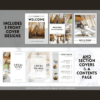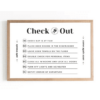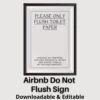If you’re an Airbnb host, you’ve probably heard about Airbnb’s damage protection policy, known as AirCover. Airbnb claims it offers coverage for property damage and liability, but what does that really mean? What kinds of damage are covered, and more importantly, what risks could still leave you out of pocket? I’m here to give you the full lowdown with no fluff—breaking down exactly what Airbnb’s AirCover covers, what it doesn’t, and the common pitfalls that most hosts overlook until it’s too late.
Hosting on Airbnb can be a rewarding experience, but it comes with risks. Understanding the limits of the protection Airbnb offers can save you from nasty surprises and financial headaches. So, let’s dive in with some clear, no-nonsense tips on navigating Airbnb’s damage protection and protecting your investment.
Step 1: Understand the Basics of Airbnb AirCover
First things first—yes, Airbnb’s AirCover is real coverage. It’s not just marketing hype. If a guest accidentally breaks something like a table, stains your carpet, or their child decides to get creative with a Sharpie on your walls, AirCover can come to your aid.
Airbnb states that AirCover provides up to three million dollars in coverage for property damage and liability. That sounds impressive, and in my experience, Airbnb does pay out—but only when the damage fits their strict definition.
Here’s what is typically covered under Airbnb’s AirCover:
- Accidental damage by guests: This includes broken dishes, holes in walls, damaged furniture, and other sudden mishaps.
- Pet damage: If your listing allows pets and a guest’s dog chews up your couch, AirCover can help with repairs or replacements.
- Smoke or odor removal: If there’s an unusual smell or smoke damage caused by guests, AirCover can cover the cost of extra cleaning.
- Extra cleaning: For extreme messes like glitter bombs or mysterious fluids that require more than a standard clean.
- Lost income: If your property is damaged and you lose confirmed bookings because of it, AirCover can compensate you for that lost income.
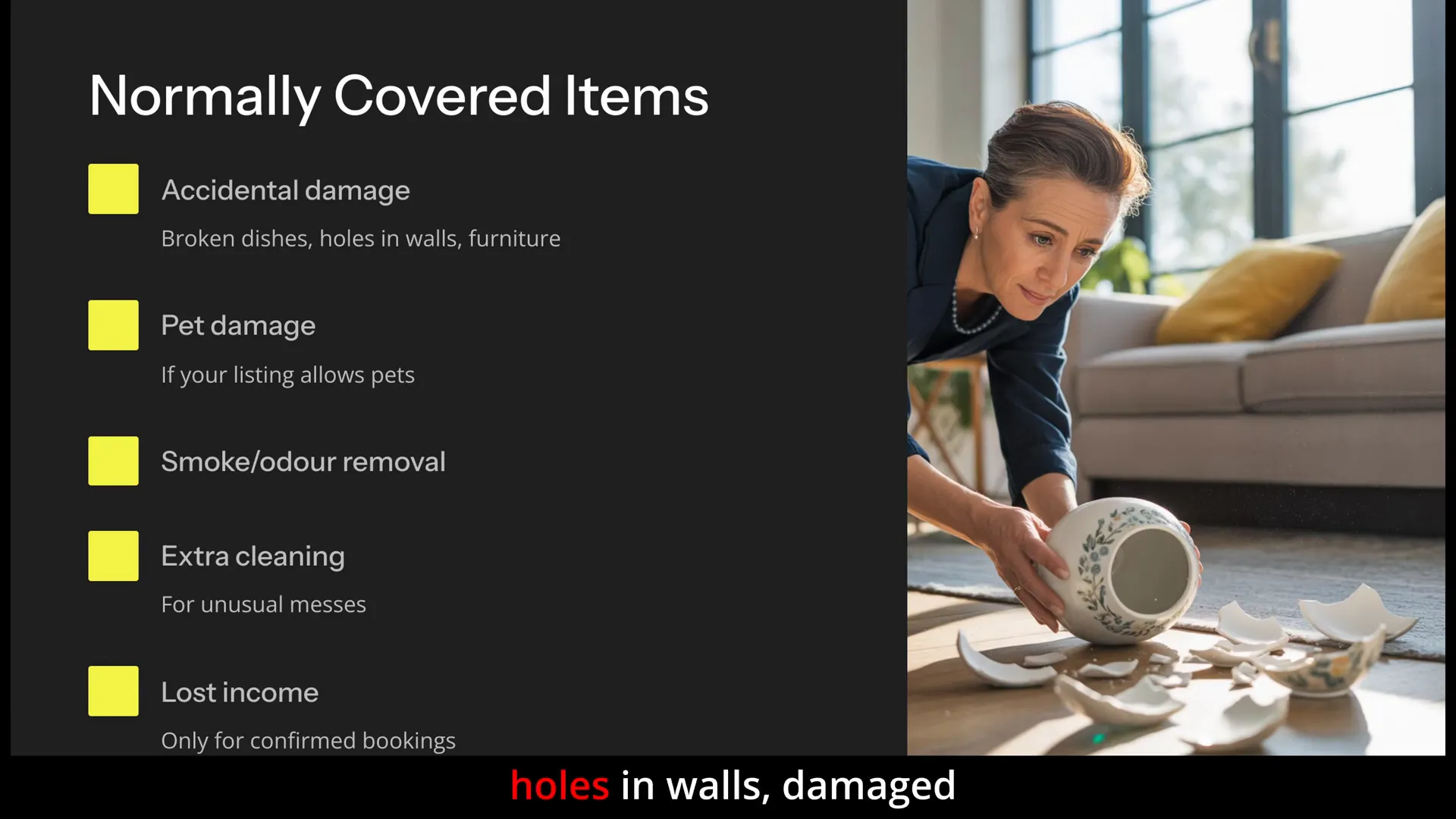
While this sounds reassuring, the devil is in the details. Airbnb’s definition of damage and the conditions for filing claims are quite specific, so understanding the limitations is crucial.
Step 2: Know What Airbnb AirCover Does NOT Cover
Now for the less pleasant news—there are plenty of things Airbnb AirCover won’t cover, and some of these exclusions might surprise you. These gaps in coverage can leave you vulnerable if you don’t know about them beforehand.
Expected Wear and Tear
If a guest scuffs your floors or your couch becomes saggy from overuse, AirCover won’t help. Airbnb labels this as “expected aging.” It doesn’t matter if the item was in perfect condition before the guest arrived—normal wear and tear caused by guests is not covered.
So if your guests sleep like elephants and your mattress is worn out after a weekend, that’s on you.
Gradual Damage
This one is sneaky and often overlooked. Gradual damage means deterioration that happens over time rather than suddenly.
- Mold from long hot showers: If guests cause mold buildup in your bathroom by taking excessive hot showers, AirCover won’t cover the mold remediation.
- Water damage from slow leaks: Damage caused by a slow leak or overuse is considered a maintenance issue, not a sudden damage event.
Unless something breaks suddenly, Airbnb will likely classify the damage as your responsibility to maintain.
Cash, Jewelry, and Collectibles
If you keep valuables like a vintage Rolex, rare coins, or an emergency cash stash in your Airbnb, don’t expect AirCover to protect them. Even if a guest steals these items, Airbnb’s damage protection excludes cash, jewelry, and collectibles.
This means you need to be vigilant about what you leave out in your listing and not assume Airbnb will cover theft of valuables.
Locked Storage or Unlisted Areas
Here’s a big one that many hosts miss: if you have a locked storage room, garage, or any area not listed as part of your rental, Airbnb might not cover damage inside those spaces.
If a guest breaks in and tampers with your belongings in these unlisted areas, filing a claim can become complicated.
To protect these spaces, make sure to:
- Include them in your listing description explicitly.
- Consider installing a security camera outside these spaces to monitor activity.
Shared Spaces in Private Room Rentals
If you rent out a private room but share common areas like the kitchen or hallway, Airbnb might deny damage claims if the guest can argue someone else caused the damage.
This ambiguity can make it harder to prove who is responsible, so extra documentation and clear communication with guests are essential.
Step 3: Document Everything with Time-Stamped Photos
One of the most critical things you can do as a host is to take clear, time-stamped photos before and after every booking. Without solid photo evidence, Airbnb might simply say they can’t verify the damage happened during a guest’s stay.
If you don’t message the guest immediately about the damage, or if you fail to provide before-and-after photos, your claim is likely to be denied.
I know it’s annoying to take photos every time, but trust me—this is your best protection when a claim becomes necessary.
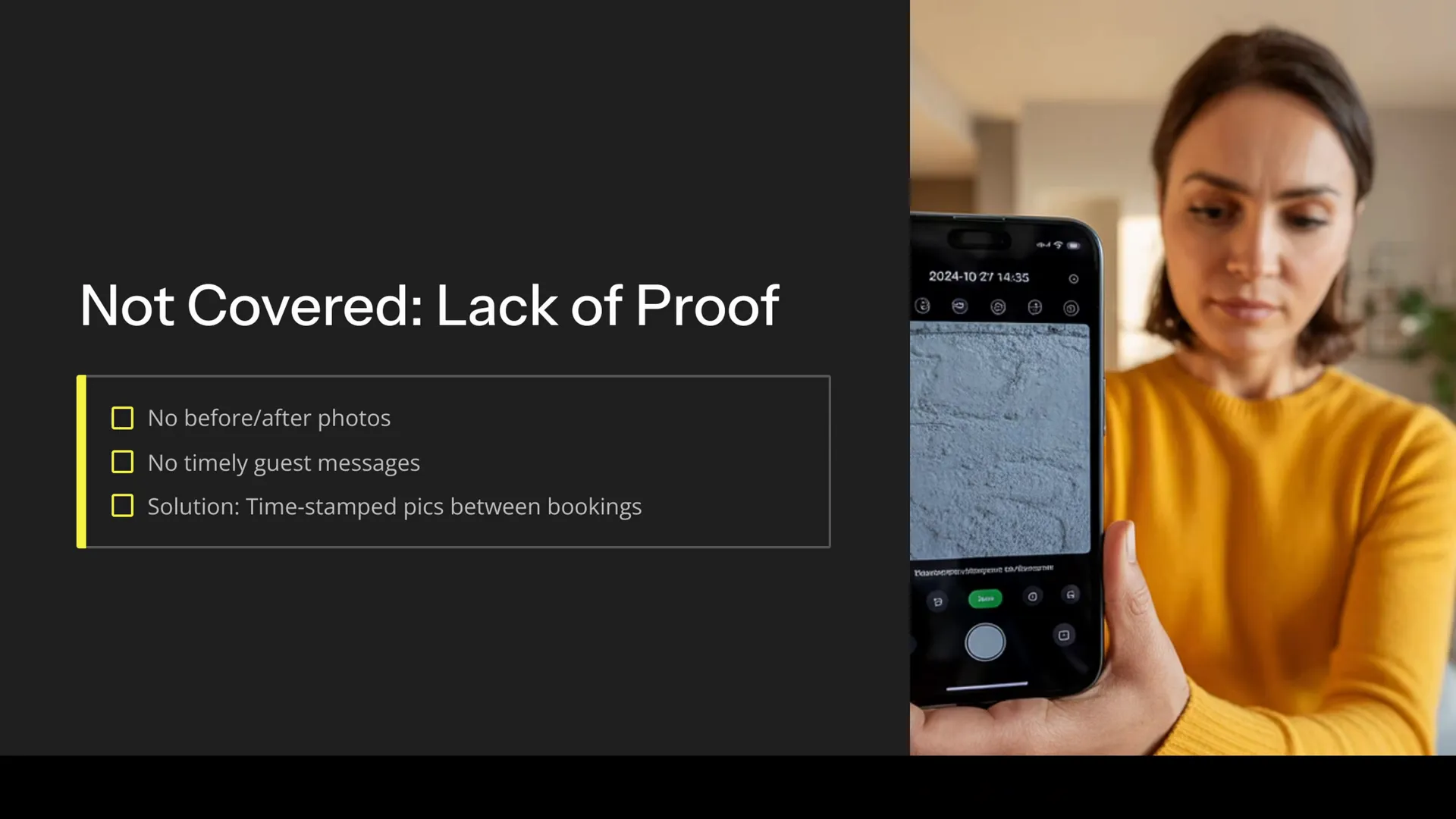
Step 4: Understand What Constitutes Deep Cleaning Coverage
Airbnb says they will cover deep cleaning if guests leave a serious mess, but this doesn’t mean they cover a full scrub down after a typical dirty stay.
Deep cleaning coverage applies to extreme situations like biohazards, bodily fluids, or other severe messes that regular cleaning can’t handle.
So don’t expect AirCover to pay for a standard turnover clean if your guests just leave things a bit messy.
Step 5: Recognize When Claims Are Most Likely to Be Denied
There are several common reasons Airbnb rejects AirCover claims. Knowing these can help you avoid pitfalls:
- Damage was reported too late: Timing is everything. Report damage as soon as you discover it.
- You didn’t message the guest via Airbnb: Communication through the Airbnb platform is crucial for claim validation.
- No clear before and after photos: Without photo proof, Airbnb may deny your claim.
- Damaged items weren’t listed in your inventory or photos: If you didn’t document the item before the guest’s stay, it’s harder to prove it was damaged.
- Damage is classified as wear and tear: Airbnb excludes normal aging and maintenance issues.
- You can’t prove the guest caused the damage: If it’s unclear who caused the damage, Airbnb may err on the side of denial.
It’s brutal, but this is the reality hosts face when relying solely on Airbnb’s AirCover.
Step 6: Consider Supplementing AirCover with Your Own Insurance
Personally, I still file AirCover claims when they make sense. However, I don’t rely on Airbnb’s definition of damage alone—that’s why I have my own short-term rental insurance policy.
Why? Because I don’t want to deal with loopholes or denials when something unexpected happens—like a dog chewing through my WiFi router or squatters overstaying their welcome.
Real short-term rental insurance can cover things Airbnb won’t, such as:
- Squatters and unauthorized occupants
- Income loss beyond confirmed bookings
- Natural disasters and other unforeseen events
If you plan to host long term, it’s wise to invest in proper insurance outside Airbnb to truly protect your property and income.
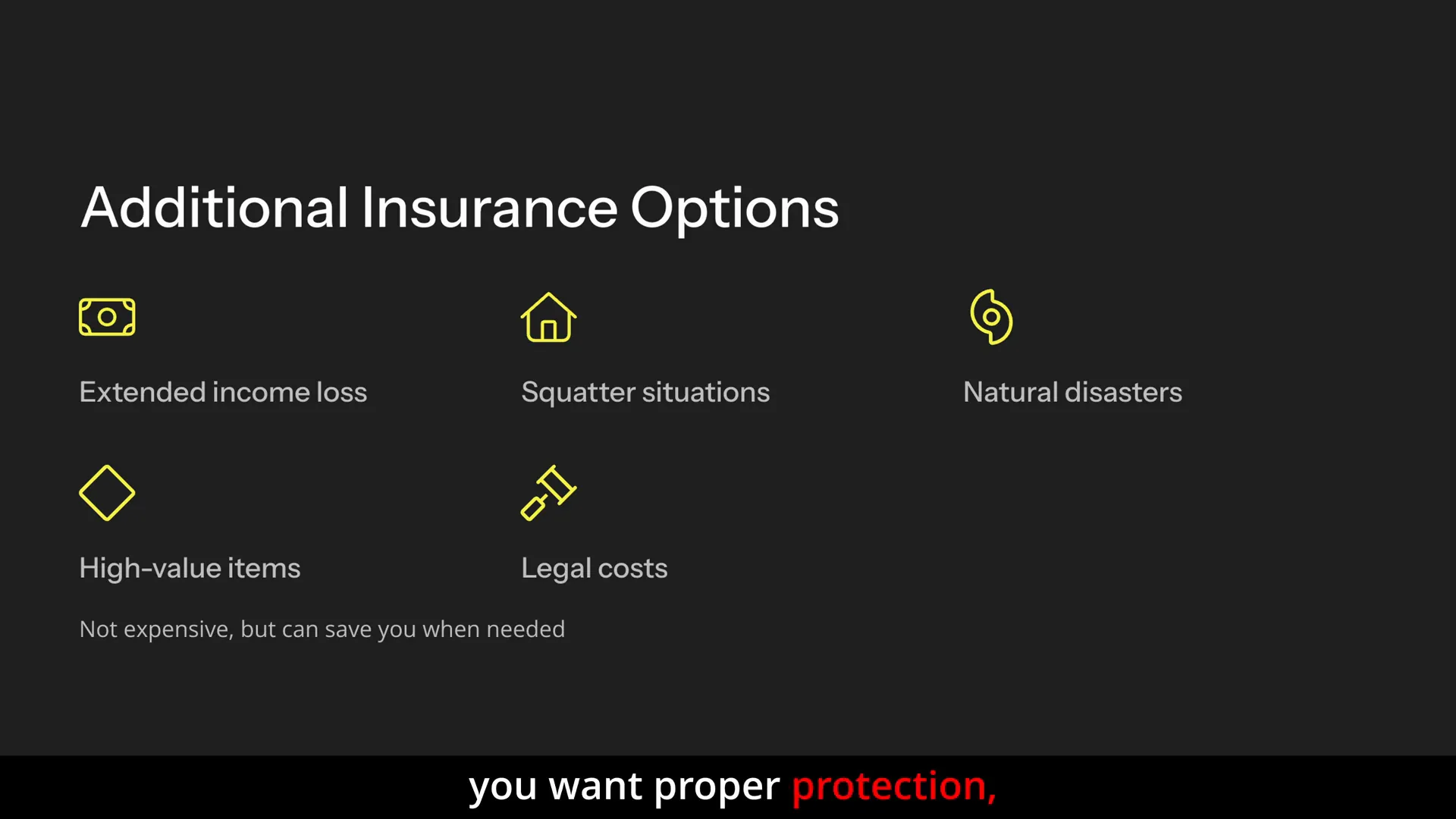
Step 7: Find Reliable Short-Term Rental Insurance Providers
Depending on where you host, there are several reputable short-term rental insurance providers to consider. Whether you’re in the US, UK, Canada, Australia, or Europe, you can find policies tailored to your market with comprehensive coverage.
Many providers offer free online quotes, so you can quickly compare options and find the best fit for your needs.
Some key factors to look for when choosing insurance include:
- Coverage limits that match your property value
- Protection that includes liability, property damage, and lost income
- Coverage for common Airbnb host risks like squatters and natural disasters
- Good customer service and fast claims processing
Investing a little time in researching insurance can save you thousands in the long run.
Step 8: Share Your Experience and Learn from Others
One of the best ways to navigate Airbnb damage protection is by learning from other hosts’ experiences. If you’ve had an AirCover claim approved or denied, share what happened and what Airbnb told you.
Being part of a host community or forum can provide valuable insights and help you avoid common mistakes.
Remember, knowledge is power, and the more you know about what is actually covered, the less painful those unexpected moments will be.
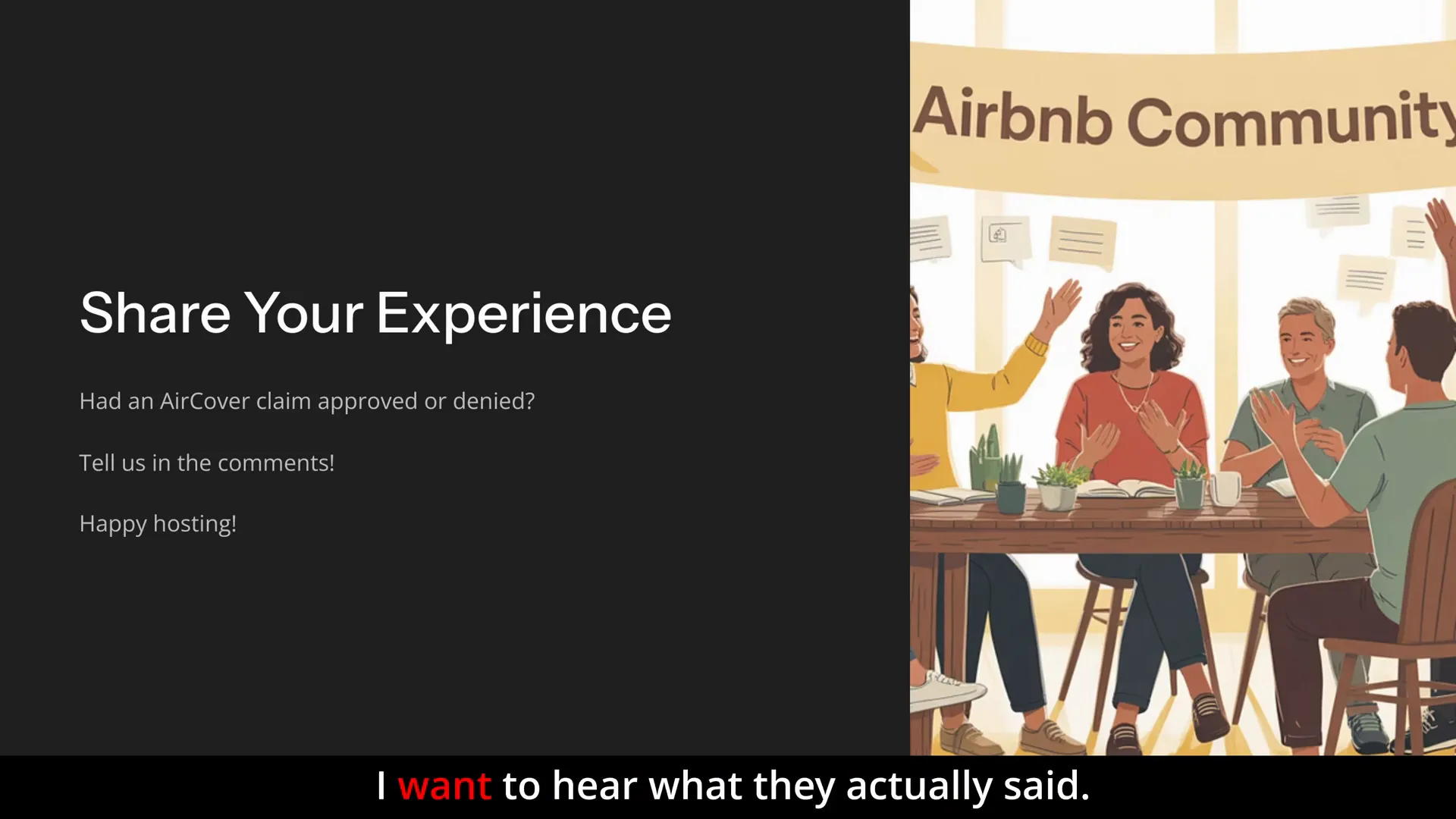
Conclusion: Protect Your Airbnb Business with No-Nonsense Tips
Airbnb’s AirCover damage protection offers a useful safety net, but it’s far from a catch-all solution. Understanding exactly what is and isn’t covered is critical to managing your risks as a host.
From accidental guest damage to pet mishaps, AirCover can save you money—if you follow the rules and document everything meticulously. However, expected wear and tear, gradual damage, theft of valuables, and damage in unlisted spaces are often excluded.
Taking no-nonsense tips from experienced hosts, the best strategy is to:
- Keep detailed, time-stamped photos of your property before and after every stay.
- Report damage promptly and communicate through Airbnb’s platform.
- List all areas and valuable items clearly in your listing.
- Consider supplemental short-term rental insurance for comprehensive coverage.
- Stay informed by engaging with other hosts and sharing your experiences.
Airbnb hosting is a business, and like any business, protecting your assets requires more than just relying on the platform’s built-in protections. Use these no-nonsense tips to safeguard your property, income, and peace of mind.
Happy hosting!




